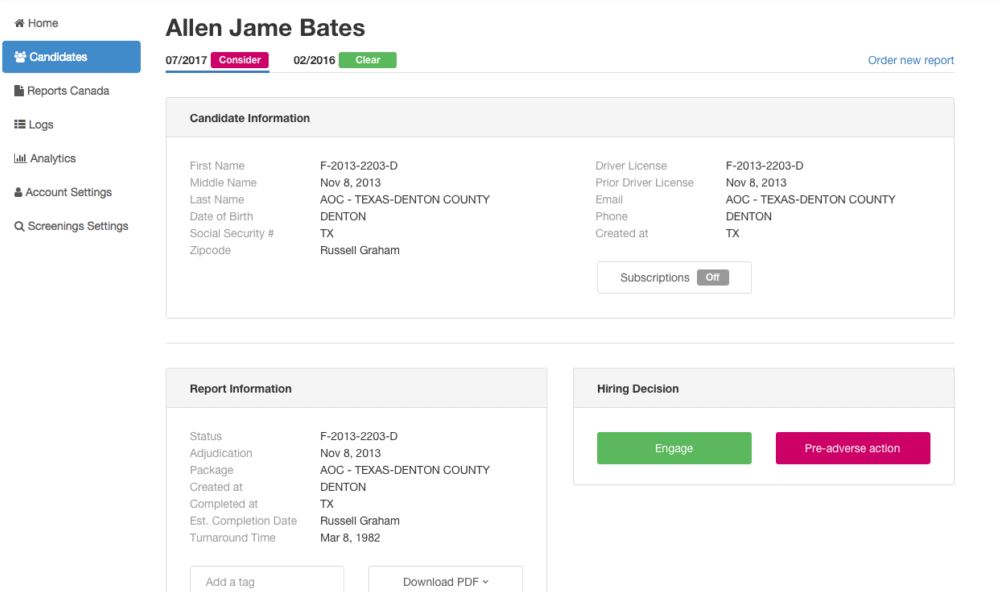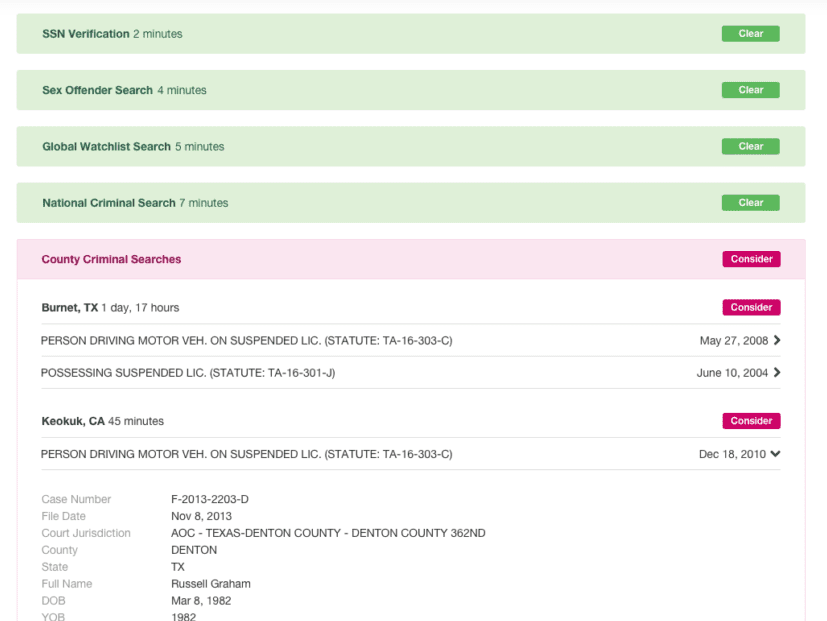If you’ve ever been fired from a job, you would know how it can affect your self-esteem and confidence. Some people find ways to get over it quickly, while others have a much harder time. There are plenty of reasons why someone would be fired from a job, including theft and misconduct. Other times, it’s simply because the position is no longer needed. Whatever the reason, one thing remains: being fired is part of life’s challenges. However, deciding to handle these obstacles in your life will determine if you stay successful or not. The most important thing about being fired is that the experience doesn’t define who you are. Sometimes, we need some guidance in dealing with this, so we don’t repeat our mistakes.
So if you’re moving on from a job, whether by choice or not, you may be wondering what will happen to your file. Background checks have become an integral part of hiring for several companies. That means your information may be available for years to come, including whether you got fired before or not.
Does being fired show up on background checks in Europe?
Yes, in Europe, if you are being fired, that information can show up on background checks. For example, in Germany, future employers can see your work performance, the reason for job termination, and salary.
Does being fired show up on background checks in the US?
No, if you have been fired, that information will not show on your background check. US background checks confirm your dates of employment and nothing else related to your previous jobs. However, background checks will reveal felony and misdemeanor criminal convictions and pending criminal cases.
Let us see one example of a background check.
Below is a presented background check for past employment (external site)

Background check for criminal records example:

Background checks are typically performed by employers who want to know if their potential employees are trustworthy. They’ll look into your past employment history, any criminal activity you’ve been involved with, and whether or not you have any outstanding debts or lawsuits against you. The process varies based on the position being applied for and the company conducting the background check.
A bad hire can cost an employer a lot of money, so most companies want to make sure they’re hiring trustworthy people who won’t cause them problems down the road. If you’ve been fired from a job, this might raise some red flags in a potential employer’s mind.
But don’t despair! Being fired doesn’t necessarily mean that you won’t get another job—it just means that your chances are maybe a little more complex than if you hadn’t been let go from an earlier position.
What job applications may ask about your prior employment
Some job applications may ask about your previous work. It’s important to know what they are looking for when they ask you about this to make sure you’re sharing the correct information with them.
Here are some of the questions they may ask:
- When were you employed by (company name)? What was your role? How long did you work there? Why did you leave? How did your experience there relate to the position you are applying for?
- What would make you a good fit for this position? Why should we hire YOU over other candidates with similar qualifications?
- How do your skills align with what we need in this position? What do you bring to the table that other candidates don’t have?
How do employers contact prior employers?
It depends on the employer, but generally speaking, they usually make this request before doing a background check. Sometimes they will also contact your past employers without asking first.
If you don’t want them to contact certain places, you can always let them know when they ask for your permission.
Whether or not an employer contacts a previous employer depends on the company policy and the position. The type of job matters, too, because some jobs require professional certifications, licenses, education credentials, and references to be verified by a third party who can verify their authenticity.
Generally speaking, though, if someone’s been terminated from employment before, it could show up as something negative during their background check. This isn’t necessarily true, though, because sometimes employers have good reasons for letting people go, like if they didn’t work out well or had performance issues, so there could be other factors involved that are positive as well, which might outweigh any negatives associated with termination if those exist at all in some cases where someone was fired unfairly or unjustly based off false accusations by former coworkers, etc.
In what way will your past employer describe why you were fired?
Not every employer will describe a fired employee in the same way. One former boss might be friendly and willing to talk about your termination, while another might be more protective of their business’ information and not share anything.
Some reasons why your former employer may be forthcoming with information:
- They believe you misrepresented yourself or withheld essential details during the hiring process
- You were accused of workplace misconduct
- Your past employers feel they have to disclose if they want to keep you from being hired elsewhere, especially if your termination was a severe offense that could negatively impact their business.
What to do if you think the information is wrong (or legal)?
There are steps you can take if you believe that your previous employer misrepresented the details of your firing. It is illegal for any employer to make false or misleading statements about a former employee. If you believe this happened to you, consult an employment law attorney in your area.
If there’s no reason to suspect your former employer lied and they gave an accurate accounting of what happened, then it’s probably time to get ready for some hard conversations. Be prepared to discuss any negative information on your background check if asked during a job interview, whether it’s technically legal or not. You may be able to talk through your situation with an open-minded potential employer and explain what happened in a way that reassures them.
A professional background check on yourself before applying for new jobs will allow you to deal with undesirable information before someone else proactively does it for you. Better yet, do a background check on yourself regularly. If anything pops up in the future—whether it’s legitimate or not—you’ll know immediately and be able to take action before the situation affects job opportunities for you down the line.
Other reasons why you might be denied a job
However, for some employers, poor job history and poor performance in an interview might not be enough to keep someone out of their job. Their background check might reveal something else.
Not all employers will run background checks, and they can range from a quick phone call to an in-depth investigation. Your prior employer’s input will likely depend on their policy.
Whether your former job will show up on a background check depends on a few factors. The first is the kind of background check run, and the second is the employer’s policy.
Conclusion
Not all employers will run background checks: An introductory phone call or email to verify your employment history might be enough for some companies. If a more in-depth investigation is done, it’s not guaranteed that every company you’ve worked for will be contacted. In addition, your prior employer’s input will likely depend on their policy: Some only confirm dates of employment, while others might share additional details about why you left.
